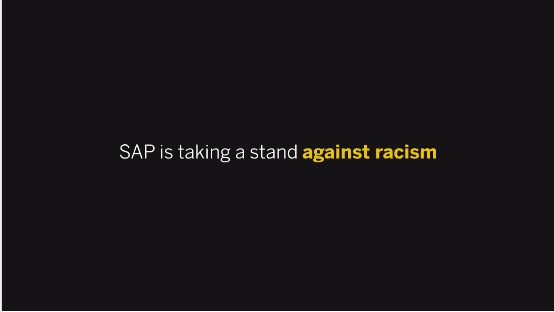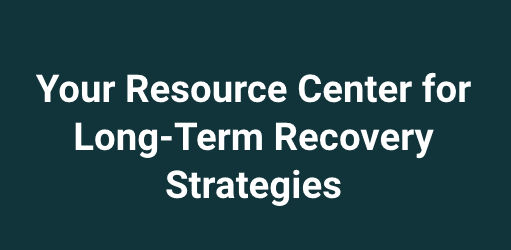There are so many things that we learn at a young age that eventually shape who we become and how the world views us. Not just how to talk, walk and tie our shoes, but what’s right, what’s wrong, and many other choices and moral/ethical mashups in-between.
Together, these form a foundation, or the beginning to a playbook rather, that sets us out into the world with something we can add and refer to along the way. As I reflect on these last eleven months, while we’ve seen, heard and experienced so much darkness, I am pleased to say that through it all, there were also some incredibly impactful moments of light – some of which I attribute to the lessons from life’s playbook.
Embrace Challenge and Risk in the Workplace
For example, from a business and marketing perspective, 2020 was the dawn of visible, empathetic leadership, and the year when brands embraced their humanity. As COVID-19 raged, erasing the line between work and home, for the first time everyone from the mailroom to the corner office was in the same boat. With our lives and livelihoods turned upside down and our mental health pushed to the brink, no longer did traditional, opportunistic messages resonate. Rather, this moment required focus on a deeper, more relatable and transparent level of communication. Here at PAN, that meant we needed to maintain a meaningful pulse on the immediate value and assistance our clients could authentically highlight at the appropriate time and place. Sometimes, that meant knowing when they should say nothing at all and just simply listen.
Actions Spoke Louder Than Words
But 2020 wasn’t the historical year that it was just because of COVID-19. It also became the precipice for systemic, structural change when the calls for diversity, equity and inclusion would no longer be silenced. Though communications strategies from COVID-19 still applied, after the tragic death of George Floyd and countless others gave new urgency to the Black Lives Matter movement, the added layer of what this movement stands for commanded more than empathy and transparency – it demanded action. It was no longer enough for brands or leaders to talk-the-talk about DEI, but it was a matter of showing tangible actions taken in the here and now.
“It was no longer enough for brands or leaders to talk-the-talk about DEI, but it was a matter of showing tangible actions taken in the here and now.”
This became a turning point for corporate communications because it was imperative across all channels, even for our own firm, that we understood what would add value and what would add noise to critical conversations. In short, the message from the social landscape was this: if you have nothing to contribute to change, let us know when you do. But if you’re not ready now, we the customer will find another brand who is.

Top Crisis Communications Lessons From 2020
After reading hundreds of articles over the course of last year, I noticed a favored phrase among leaders hoping to help others navigate the tumult: “there isn’t a playbook to turn to in these situations”. While there is partial truth in that, I posit that our mothers, fathers, grandparents and teachers bestowed timeless life lessons and common sense that actually came full circle in 2020. In fact, the playbook was with us all along.
- Do unto others as you would have them do unto you – Empathy and understanding go a long way to demonstrate strength and quality of character. While we often think of this in personal terms, it’s something to put into practice across every aspect of life. As marketing and PR professionals, empathy must be at the center of everything. Those brands and leaders who helped customers, partners and employees feel heard and supported during these volatile times, it is they who truly understand loyalty, trust and community.
- You have to walk the walk if you’re going to talk the talk – The injustices and cruelty surrounding George Floyd’s death catalyzed the world to demand change. In response, individuals, brands and even governments had to face the glaring truth that systemic racism exists and the need for resolve can no longer be ignored. How can we better educate ourselves? Where are we missing the mark among underrepresented groups and how can we ensure equal opportunity? Organizations that put in the work, rather than simply giving hollow promises, are those who are still here and who will continue to thrive. DEI is no longer a nice to have – it’s imperative. We must ensure that future generations of consumers can see, hear and identify themselves in our brands.
Learn how client SAP is taking a stand.
- If you don’t have anything to say, don’t say anything at all – While a minor adjustment to this age-old advice, 2020 was about more than just being nice. If what you had to say added no value to the conversations that matter most to you, you run the risk coming off as tone deaf, disingenuous and inauthentic. Sometimes the most impactful thing a brand or executive can do is wait and listen to what their audience is saying. But, when and if you do choose to enter that conversation, make sure what you have to share makes them feel heard.
- If you don’t know the answer, don’t be afraid to ask the question – We don’t know what we don’t know. A hard fact of life that’s tough for all of us to except sometimes, is that there will be points along our journey when we will not always be the smartest person in the room. That’s OK! Leaning on peers and other industry leaders to help start or guide conversations can sometimes spark something within ourselves we otherwise wouldn’t have considered – see above for the importance of diverse and inclusive perspectives!
- Honesty is the best policy – While it seems like a no brainer, we’ve seen the real-world consequences of lies and misinformation. Going over the top or touting vague promises is not sustainable and will result in the erosion of trust – which is much harder for a brand to earn. At the end of the day, truth and simplicity are the best course of action.
To quote the National Youth Poet Laureate Amanda Gorman from her breathtaking poem shared during the inauguration, “we are striving to forge our union with purpose. To compose a country committed to all cultures, colors, characters, and conditions of man. And so we lift our gazes not to what stands between us, but what stands before us.” Even though the world’s standards are higher than ever, that doesn’t mean that we shouldn’t all rise up to meet or surpass them. When we are faced with uncertainty of what to do or what to say, we should all take a little solace in knowing that our trusty playbook will be there waiting in the wings.





